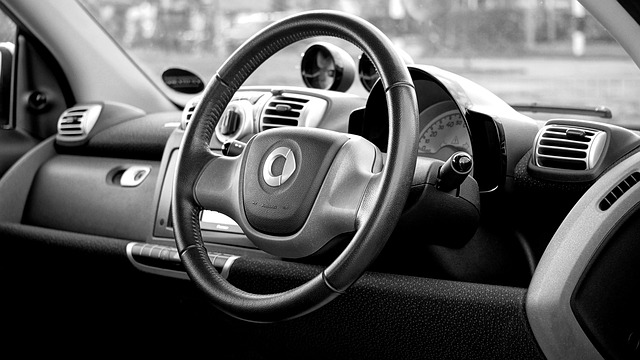Autonomous vehicles' future relies on advanced sensor fusion and perception tech from Select Smart Car Tech, enabling precise navigation and real-time data processing. Integration with connected car ecosystems enhances traffic flow and safety through smart route planning and regulatory bodies navigate guidelines for public trust. AVs have the potential to transform urban planning, optimizing congestion and reducing emissions while shaping innovative transportation networks.
The future of transportation is here with the rise of autonomous vehicles (AVs). Powered by advancements in sensor fusion and perception technologies, these smart cars promise safer, more efficient travel. However, ethical and regulatory considerations remain pivotal as we navigate their integration into our roads. This article explores key aspects of AV development, delving into cutting-edge Select Smart Car Tech, its impact on infrastructure, and urban planning. By examining these facets, we gain insights into the transformative potential of autonomous vehicles.
- Advancements in Sensor Fusion and Perception
- Ethical and Regulatory Considerations for Autonomous Vehicles
- Potential Impact on Transportation Infrastructure and Urban Planning
Advancements in Sensor Fusion and Perception

The future of autonomous vehicles heavily relies on advancements in sensor fusion and perception technologies. These breakthroughs are pivotal in enabling self-driving cars to navigate complex environments with precision and safety. Modern systems now incorporate a myriad of sensors, including LiDAR, radar, and high-resolution cameras, which work in harmony through robust sensor fusion to create a comprehensive understanding of the surroundings. This dynamic approach allows smart cars to detect and track objects, analyze traffic signs, and anticipate potential hazards, ensuring a smoother and more secure driving experience.
Furthermore, the integration of these sensors with advanced algorithms facilitates real-time data processing, enabling vehicles to make instant decisions based on changing road conditions. With the connected car ecosystem gaining traction, autonomous vehicles can communicate with each other and infrastructure, facilitating smart route planning and optimizing traffic flow. Customizable driving modes, tailored to individual preferences, add another layer of personalization, ensuring that the future of transportation is not only efficient but also adaptable to diverse user needs.
Ethical and Regulatory Considerations for Autonomous Vehicles

As autonomous vehicles (AVs) continue to develop and become a more prominent part of our future, ethical and regulatory considerations must be at the forefront of their design and implementation. One of the primary concerns revolves around ensuring the safety of both passengers and pedestrians. With advancements in smart car tech, such as enhanced sensors and machine learning capabilities, developers must navigate complex situations where decisions made by these vehicles can significantly impact lives. For instance, how should an AV prioritize the safety of its occupants versus that of others on the road? This ethical dilemma requires robust algorithms and transparent decision-making processes to gain public trust.
Regulatory bodies worldwide are also grappling with establishing guidelines for testing and deploying AVs. These regulations need to balance innovation with caution, enabling the development of safe and reliable smart car technology features while mitigating potential risks. Additionally, the integration of AVs into smart cities demands consideration of data privacy and security. Personalized driver profiles and home charging setups could be integral parts of this future landscape, requiring robust infrastructure and secure systems to protect user information. Such considerations are vital to the harmonious coexistence of advanced vehicle technologies with existing urban ecosystems.
Potential Impact on Transportation Infrastructure and Urban Planning

The rise of autonomous vehicles (AVs) promises to revolutionize transportation infrastructure and urban planning. With self-driving capabilities integrated into smart cars via advanced tech, cities may evolve to accommodate more efficient and sustainable mobility patterns. For instance, optimized traffic flow could reduce congestion, leading to greener urban landscapes and improved quality of life for residents.
Select Smart Car Tech offers innovative car connectivity solutions that facilitate seamless AV integration. These solutions enhance safety by leveraging real-time data for precise autonomous vehicle navigation. Moreover, embracing green driving tips through these advanced systems can contribute to lowering carbon emissions, making urban areas more eco-friendly. Such transformations will likely reshape public transportation networks and encourage new models of urban development.
The future of autonomous vehicles is not just a distant vision but an imminent reality. With advancements in sensor fusion and perception, ethical frameworks taking shape, and a profound impact on transportation infrastructure, the world is poised for a transformative shift in mobility. As we navigate these changes, selecting smart car tech that prioritizes safety, efficiency, and sustainability will be key to unlocking a future where autonomous vehicles enhance our lives and reshape urban landscapes.
